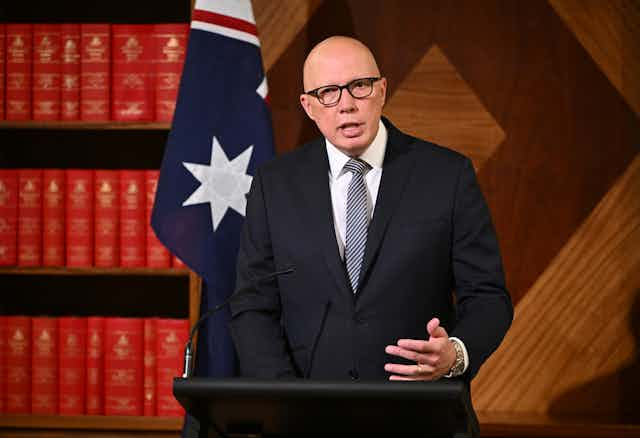Newspoll has found that more than six in ten Australians (62%) believe the Albanese government did the right thing in reworking the Stage 3 tax cuts.
The poll showed no change in the two-party vote, with Labor retaining a 52% to 48% lead compared to the last poll, taken in late 2023.
It also shows virtually no change in Anthony Albanese’s personal ratings, suggesting his broken promise has not affected his credibility in the public’s mind.
Some 38% of people said they would be better off under the changes to the tax policy.
The opposition is set to declare its stance on Labor’s revamped tax cuts on Tuesday, after the government on Sunday released the legislation for the changes.
Shadow cabinet on Monday will consider the legislation, and it will go to the joint parties on Tuesday, the day it will be introduced into parliament.
The Coalition will try to amend the package but when its amendment fails it is expected to reluctantly wave the legislation through. If it does, that would render irrelevant the Greens, who are demanding changes and other concessions in return for support.
But there is division in Coalition ranks. Former frontbencher Julian Leeser said at the weekend he would be arguing that “we must stand for what we believe and we must oppose Labor’s attempts to ditch the [Coalition] legislated tax cuts”.
Albanese said the government wanted its legislation passed “during this session, which finishes up before Easter”. The new tax cuts will come in on July 1. If the legislation wasn’t passed in time, the old Stage 3 cuts, which favour higher income earners, would start operating from July 1.
The reworked tax cuts, which give all taxpayers a cut but are targeted to lower and middle income earners, are a central pitch by Labor for the March 2 Dunkley byelection.
Labor is buoyed by indications they are going down well in the community, giving the ABC party research showing strong support. The reworked package has the majority of taxpayers better off than the original Stage 3, but a minority get a smaller cut than they would have received.
Appearing on the ABC on Sunday, Albanese fended off questioning about whether breaking his promise to deliver the Coalition’s Stage 3 could be the thin end of the wedge, for example for changes to negative gearing.
Asked whether he thought the existing negative gearing rules were fair, he said: “Well, they make a difference for people. They’ve been there for a long time. There is a whole lot of analysis that says they encourage investment in housing”. He pointed out that “they’re not an equity measure, they are a supply measure”.
Pressed on whether his word was still his bond after the broken promise, Albanese said, “I’m an honest person. I am upfront.
"What I have done here is be very, very clear. And I’ve listened to people who are all saying […] to me, ‘Well, what are you doing about cost of living?’”
The tax cuts are set to be the main issue when federal parliament starts its sitting for the year on Tuesday.
But argument on another front has opened, with the government announcing a fuel efficiency standard for new vehicles. This will work by providing car companies with targets for average emissions per kilometre for new vehicles sold, of the kind that that prevail in Europe, the US and Japan.
Energy Minister Chris Bowen and Transport Minister Catherine King said by introducing the standard the government was delivering more cars that were cheaper to run, and giving motorists choice.
The new rules would start on January 1 next year.
The opposition said in a statement, “Australian’s favourite vehicles could soon be unaffordable if Labor’s fuel efficiency standard fails to strike the correct balance between minimising costs, reducing emissions and maximising choice for all Australians”.
Read more: The embarrassingly easy, tax-free way for Australia to cut the cost of electric cars

